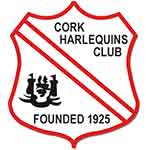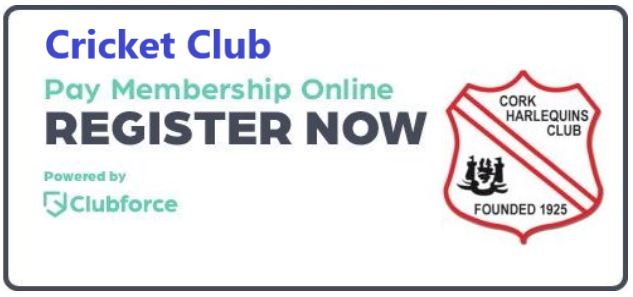Child Welfare Roles and Responsibilities
National Children’s Officer (NCO)
Each Governing Body of Sport should appoint a National Children’s Officer. The National Children’s Officer should be a member of the Executive Committee, or have access to the committee and its accompanying documents, to ensure that children’s interests are kept on, and influence the decisions of, the agenda of the Governing Body.
The role of the National Children’s Officer involves:
- Have knowledge of the Safeguarding Code and relevant child protection legislation (Children First Act 2015 (ROI)/National Vetting Bureau Act 2012-2016,
- Commitment to attendance at appropriate training as required in order to act as a resource to members in relation to children’s needs
- Co-ordination of Child Safeguarding training.
- The promotion of the values, attitudes and structures which make sport enjoyable for children
- Circulation of all relevant information and resource materials, on children’s sport to clubs and affiliates of the sports organisations
- Communication with Club Children’s Officers to ensure the distribution of the Code and the promotion of related education programmes, materials events and governing body related codes
- Liaison with all clubs to examine the rules, regulations and structures to ensure that they are child centred, e.g., equal playing time, appropriate competition structures, modified equipment to allow sense of achievement and success, use of protective gear, bullying policy etc.
- Liaison with clubs, to ensure drop-out rates and transfers are monitored so that unusual developments or trends can be addressed, including transfer of sports leaders
- Assisting in the development of a system of record keeping which maintains confidentiality while allowing for appropriate information to be passed to relevant authorities where necessary
- Ensuring that the Governing Body develops an appropriate sport specific policy, which includes a policy statement, codes of conduct, disciplinary procedures, bullying policy, safety statement, recruitment and selection policy and reporting procedures.
Club Children’s Officer (CCO)
Club Children’s Officers (CCO): Children’s Officers are appointed within clubs to act as a resource for children and to represent them at committee level.
The appointment of Club Children’s Officers in a sports clubs/organisations is an essential element in the creation of a quality atmosphere. They act as a resource with regard to children’s issues. In summary Children’s Officers should review current policies in relation to young people, check that all activities are safe and fun, and inform adults of how to deal with any concerns that may arise in relation to the protection of children and young people. Club Children’s Officers should be child centred in focus and have as the primary aim the establishment of a child centred ethos within the club. S/he is the link between the children and the adults in the club. He/she also takes responsibility for monitoring and reporting to the Club Management Committee on how club policy impacts on young people and Sports Leaders. The Children’s Officer should be a member of or have access to, the Club Management Committee and should be introduced to the young people in an appropriate forum.
The Club Children’s Officer should have the following role:
To promote awareness of safeguarding guidelines within the club, among young members and their parents/guardians. This could be achieved by:- the production / distribution of
information leaflets, the establishment of children’s/age group specific notice boards, regular information meetings for the young people and their parents/guardians.
• To influence policy and practice within the club in order to prioritise children’s needs
• Establish contact with the National Children’s Officer at governing body level.
• To ensure that children know how to make concerns known to appropriate adults or agencies.
• To encourage the appropriate involvement of parents/guardians in the club activities
• To act as an advisory resource to Sports Leaders on best practice in children’s sport
• To report regularly to the Club Management Committee.
• To monitor changes in membership and follow up any unusual dropout, absenteeism or club transfers by children or Sports Leaders
• To ensure that the children have a voice in the running of their club and ensure that there are steps young people can take to express concerns about their sports activities
/ experiences.
• Establish communication with other branches of the club, e.g. facilitate parent’s information sessions at the start of the season
• Keep records on each member on file, including junior members, their contact numbers and any Safeguarding Guidance for Children and Young People in Sport special needs of the child that should be known to leaders
• Ensure each member signs an annual membership form that includes signing up to the code of conduct for sports leaders and children and young people.
Ensure that the club rules and regulations include:
• complaints, disciplinary and appeals procedures.
• an anti-bullying policy.
• safety statement.
• rules in relation to traveling with children.
• supervision and recruitment of leaders
Designated Liaison Person (DLP)
Designated Liaison Person (DLP): A person who is responsible for reporting allegations or suspicions of child abuse and welfare issues to the Statutory Authorities. This person will be a resource to anyone in the organisation/club who has a child protection/welfare concern.
Each NGB/Club must appoint a Designated Liaison Person (DLP). This person may or may not also fulfil the role of Children’s Officer.
- The DLP is a resource for volunteers/coaches and should ensure that the clubs reporting procedures are followed.
- The DLP reports any suspected cases of child neglect or abuse to the Duty Social Worker in Child and Family Agency/Túsla or an Garda Síochána/ Gateway team or PSNI.
- The DLP should also inform the NCO that a report has been submitted without identifying details
- The DLP should be knowledgeable about child protection and undertake any training considered necessary i.e. Safeguarding 3
- The DLP should familiarise themselves with the statutory and support services within their locality.
- Have knowledge of the Safeguarding Code and relevant child protection legislation (Children First Act 2015 (ROI)/National Vetting Bureau Act 2012-2016 (ROI) and Cooperating to Safeguard Children and Young People in Northern Ireland 2017.


























